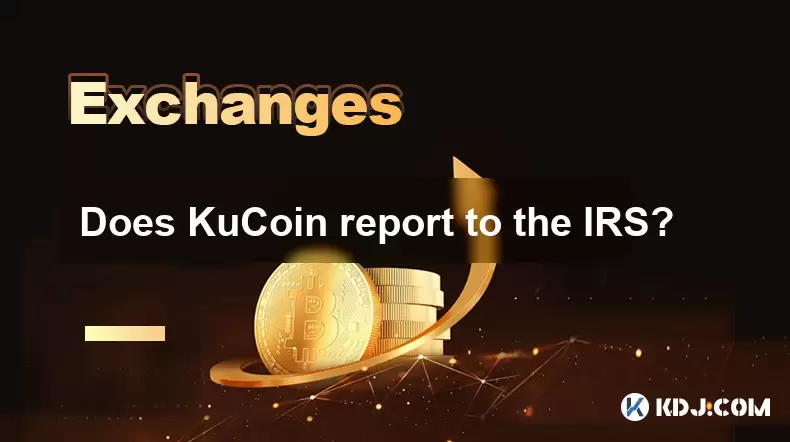-
 Bitcoin
Bitcoin $118000
0.67% -
 Ethereum
Ethereum $3750
0.71% -
 XRP
XRP $3.183
1.61% -
 Tether USDt
Tether USDt $1.000
-0.01% -
 BNB
BNB $788.1
1.21% -
 Solana
Solana $186.0
0.85% -
 USDC
USDC $0.9999
-0.02% -
 Dogecoin
Dogecoin $0.2373
1.25% -
 TRON
TRON $0.3204
1.76% -
 Cardano
Cardano $0.8266
1.85% -
 Hyperliquid
Hyperliquid $44.04
1.28% -
 Sui
Sui $4.192
5.88% -
 Stellar
Stellar $0.4399
2.63% -
 Chainlink
Chainlink $18.40
1.19% -
 Hedera
Hedera $0.2842
9.06% -
 Bitcoin Cash
Bitcoin Cash $560.5
2.46% -
 Avalanche
Avalanche $24.99
4.58% -
 Litecoin
Litecoin $114.5
1.25% -
 UNUS SED LEO
UNUS SED LEO $8.980
-0.03% -
 Shiba Inu
Shiba Inu $0.00001406
0.53% -
 Toncoin
Toncoin $3.306
4.27% -
 Ethena USDe
Ethena USDe $1.001
0.03% -
 Polkadot
Polkadot $4.169
2.37% -
 Uniswap
Uniswap $10.56
1.95% -
 Monero
Monero $322.8
1.06% -
 Dai
Dai $0.0000
0.00% -
 Bitget Token
Bitget Token $4.545
0.12% -
 Pepe
Pepe $0.00001261
1.29% -
 Aave
Aave $296.5
1.27% -
 Cronos
Cronos $0.1379
5.90%
Does KuCoin report to the IRS?
KuCoin does not automatically report user activity to the IRS, but U.S. taxpayers must still self-report crypto transactions for tax compliance.
Jul 27, 2025 at 05:01 am

Understanding the Reporting Obligations of KuCoin
Cryptocurrency exchanges are increasingly under scrutiny from global tax authorities, and KuCoin is no exception. Many users wonder whether KuCoin reports to the IRS, especially as the U.S. Internal Revenue Service intensifies its focus on cryptocurrency transactions. As of the current operational framework, KuCoin does not automatically report user activity to the IRS, but this can vary depending on specific user accounts and the types of transactions conducted.
One key factor is Know Your Customer (KYC) compliance. Users who complete KYC verification on KuCoin may be subject to more stringent reporting requirements, especially if they hold significant balances or conduct high-volume trades. However, KuCoin does not currently share user data with the IRS directly, unless compelled by legal or regulatory action.
When Does KuCoin Report to the IRS?
There are specific circumstances under which KuCoin may report to the IRS or comply with data requests. For instance, if a user receives a subpoena or legal request from the IRS, KuCoin may be required to provide account details. This is especially true for U.S.-based users or those holding U.S. dollars on the platform.
Additionally, users who withdraw large amounts of fiat currency (e.g., USD) from KuCoin may trigger reporting obligations. While KuCoin does not issue IRS forms like 1099-K or 1099-B, some third-party tax reporting services integrate with KuCoin to help users track their taxable events. This indirect reporting does not constitute KuCoin submitting data directly to the IRS, but it enables users to comply with U.S. tax laws.
How U.S. Taxpayers Should Handle KuCoin Transactions
U.S. taxpayers must understand that KuCoin’s lack of direct reporting does not exempt them from tax obligations. The IRS treats cryptocurrency as property, and all capital gains and losses must be reported on Form 8949 and Schedule D.
To ensure compliance, users should:
- Track all trades and withdrawals using tools like CoinTracking or Koinly.
- Export transaction history regularly from KuCoin for record-keeping.
- Consult a tax professional familiar with crypto regulations.
- Report all taxable events, including airdrops, staking rewards, and NFT sales.
Failure to report KuCoin-related crypto transactions can lead to penalties, audits, or even criminal charges.
Privacy and Data Security on KuCoin
One reason KuCoin does not proactively report to the IRS is its emphasis on user privacy. Unlike some centralized exchanges like Coinbase or Kraken, KuCoin does not operate under U.S. jurisdiction, which means it is not bound by the same reporting mandates.
However, KuCoin stores user data, including transaction history, KYC documents, and IP addresses. In the event of an international investigation or cooperation with law enforcement agencies, KuCoin could disclose this data. Therefore, users should not assume complete anonymity, especially if they have completed KYC procedures or linked bank accounts.
Comparing KuCoin to Other Exchanges
When compared to other major exchanges, KuCoin’s reporting practices are less transparent than those of U.S.-based platforms. For example:
- Coinbase issues Form 1099-MISC to users who earn crypto rewards.
- Kraken provides 1099-K forms to eligible users.
- Binance.US is also required to report certain transactions to the IRS.
In contrast, KuCoin does not offer IRS tax forms, but users are still responsible for self-reporting their crypto gains and losses. This makes KuCoin a less regulated but more privacy-oriented platform, appealing to users who prefer autonomy over their transaction data.
Steps to Export KuCoin Transaction History for Tax Purposes
For users who need to report their KuCoin transactions to the IRS, exporting transaction history is essential. Here's how to do it:
- Log in to your KuCoin account.
- Navigate to the [History] section under the [Wallet] tab.
- Select the desired time frame and filter by transaction type (deposits, withdrawals, trades).
- Click the export button to download the data in CSV or Excel format.
- Import the file into a crypto tax software like TokenTax or CryptoTrader.Tax for automated reporting.
Some advanced users may also use KuCoin’s API to pull transaction data directly. This requires generating an API key with read-only permissions and connecting it to a tax tool or custom script.
Frequently Asked Questions (FAQs)
1. Can the IRS track my KuCoin transactions?
Yes, the IRS can potentially track your KuCoin transactions if you link your bank account, complete KYC, or use third-party tools that integrate with KuCoin’s API. Additionally, if KuCoin receives a legal request, it may provide user data to authorities.
2. Does KuCoin issue 1099 forms?
No, KuCoin does not issue 1099 forms like 1099-MISC or 1099-K. U.S. taxpayers must self-report all crypto transactions using their own records or tax software.
3. How can I remain anonymous on KuCoin?
To maintain anonymity, avoid KYC verification, use privacy-focused wallets, and do not link bank accounts or personal information. However, regulatory changes may affect this in the future.
4. What should I do if I haven’t reported KuCoin transactions?
You should consult a crypto tax professional and consider using the IRS’s voluntary disclosure program to come into compliance. Keeping accurate records and being proactive can help reduce penalties.
Disclaimer:info@kdj.com
The information provided is not trading advice. kdj.com does not assume any responsibility for any investments made based on the information provided in this article. Cryptocurrencies are highly volatile and it is highly recommended that you invest with caution after thorough research!
If you believe that the content used on this website infringes your copyright, please contact us immediately (info@kdj.com) and we will delete it promptly.
- Tron ETF, Staking Rewards, and Institutional Capital: A New Era for TRX?
- 2025-07-27 12:50:13
- Bitcoin Reserves, Price, and Hyper Up: Riding the Crypto Wave to $1M?
- 2025-07-27 12:55:12
- Smart Money Moves: Wallet Withdrawal, SPX Accumulation, and What It All Means
- 2025-07-27 12:30:12
- Ethereum, Justin Sun, and Market Speculation: A Crypto Cocktail
- 2025-07-27 12:30:12
- Meme Coins in July 2025: Bitcoin Takes a Backseat?
- 2025-07-27 10:30:12
- HIFI Price Eyes Breakout: Downtrend Line in the Crosshairs?
- 2025-07-27 10:30:12
Related knowledge

KuCoin mobile app vs desktop
Jul 19,2025 at 08:35am
Overview of KuCoin Mobile App and Desktop PlatformThe KuCoin ecosystem offers both a mobile app and a desktop platform, each designed to cater to diff...

Is KuCoin a decentralized exchange?
Jul 18,2025 at 03:15pm
Understanding Decentralized Exchanges (DEXs)To determine whether KuCoin is a decentralized exchange, it's essential to first understand what defines a...

How to trade options on KuCoin?
Jul 19,2025 at 03:42am
Understanding Options Trading on KuCoinOptions trading on KuCoin allows users to speculate on the future price movements of cryptocurrencies without o...

What are KuCoin trading password rules?
Jul 20,2025 at 07:56am
Understanding the Purpose of a Trading Password on KuCoinOn KuCoin, a trading password serves as an additional layer of security beyond the standard l...

Does KuCoin report to the IRS?
Jul 27,2025 at 05:01am
Understanding the Reporting Obligations of KuCoinCryptocurrency exchanges are increasingly under scrutiny from global tax authorities, and KuCoin is n...

Who is the CEO of KuCoin?
Jul 20,2025 at 09:35am
Background of KuCoinKuCoin is one of the largest cryptocurrency exchanges globally, known for its diverse range of trading pairs and user-friendly int...

KuCoin mobile app vs desktop
Jul 19,2025 at 08:35am
Overview of KuCoin Mobile App and Desktop PlatformThe KuCoin ecosystem offers both a mobile app and a desktop platform, each designed to cater to diff...

Is KuCoin a decentralized exchange?
Jul 18,2025 at 03:15pm
Understanding Decentralized Exchanges (DEXs)To determine whether KuCoin is a decentralized exchange, it's essential to first understand what defines a...

How to trade options on KuCoin?
Jul 19,2025 at 03:42am
Understanding Options Trading on KuCoinOptions trading on KuCoin allows users to speculate on the future price movements of cryptocurrencies without o...

What are KuCoin trading password rules?
Jul 20,2025 at 07:56am
Understanding the Purpose of a Trading Password on KuCoinOn KuCoin, a trading password serves as an additional layer of security beyond the standard l...

Does KuCoin report to the IRS?
Jul 27,2025 at 05:01am
Understanding the Reporting Obligations of KuCoinCryptocurrency exchanges are increasingly under scrutiny from global tax authorities, and KuCoin is n...

Who is the CEO of KuCoin?
Jul 20,2025 at 09:35am
Background of KuCoinKuCoin is one of the largest cryptocurrency exchanges globally, known for its diverse range of trading pairs and user-friendly int...
See all articles

























































































